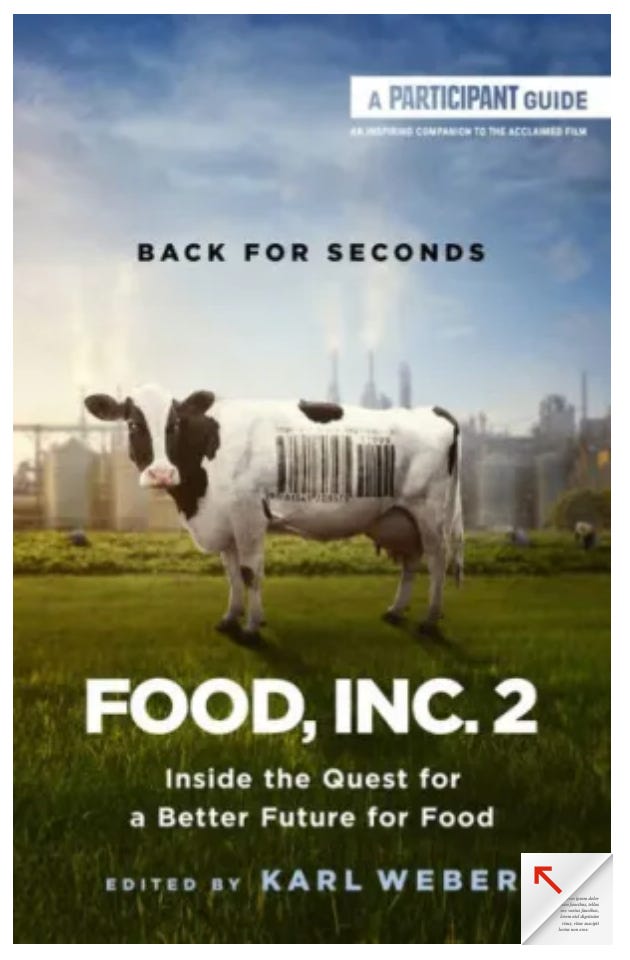Trend talk
What I talk about when I talk about my trends for 2024, climate-friendly burgers and the big question: are fancy salts worth it?
Well hello there.
I’m slowly beginning work on my second book. While I’m only at the proposal stage, I have an essay in the companion book for the new documentary Food Inc 2.0. You can order your copy here. Other authors featured in the book include Michael Pollan, Eric Schlosser, David E. Kelley and Andrew Zimmern, Senator Cory Booker, Carlos A. Monteiro and Geoffrey Cannon, Michiel Bakker, Anna Hammond and Danielle Nierenberg.
Next week, I’ll share more about the other authors in the book, the film and why we’re writing about our food system.
A few interesting tidbits:
Will cultivated meat terminology and availability become even more complex state by state? Probably definitely if you agree with this Food Dive article. (My Magic-8 ball says it’s likely.)
Is a climate friendly burger possible in our future? The question is based on this recent study, which is good. The high level is that by adopting flexitarian diets (and eating less meat) we still can’t achieve full decarbonization of the food system but it does have potential to increase the size of the net negative emissions when combined with technology scale-up. Short answer: We’ll need all the tools in the tool box in order to reverse the damage that’s been done.
Do you have a bunch of fancy salts in your spice cupboard? (I do!) This is a great essay on salt and answers the questions you’ve long wondered: Can the pricey stuff be detected in a finished dish? (Spoiler alert: it can’t except in rare cases when used on meat as a finishing salt.) However, if, like me, you buy Maldon sea salt, you’re probably doing it because of the texture and consistency. Or, in the case of Jacobsen Salt Co, which is marketed as a finishing salt, maybe you buy it because it’s made locally –if you live on the west coast. Salt may not be worth it, but dark chocolate, now we’re talking.

Pink himalayan salt rocks by Adam Cohn/Flickr Did last week’s newsletter inspire you to repurpose more leftovers? A book came in on my tips hotline from Sue Quinn who wrote a book called Second Helpings: Transform Leftovers Into Delicious Dishes. Sounds like something that can help us think outside the leftover box.
Where you can find me:
I’m moderating a virtual panel at the Harvard school of nutrition on the dangers of ultra-processed foods. When you register you can submit a question. The discussion will be available on demand starting on Dec 14th. On January 11th, there’s a one day cell-agriculture innovation event at Tufts University in Medford, MA. For the west coasters, Plant Futures Fest is on February 24th in Oakland, CA.
On with the show. The remaining newsletter is for paid subscribers. Want to upgrade? You can use the link below. You don’t wanna? That’s okay too.


